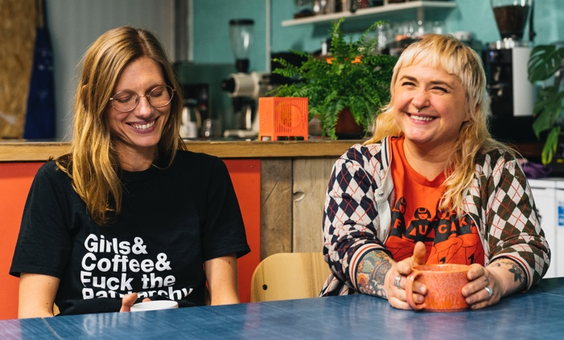Girls Who Grind Coffee
Girls Who Grind are an all-female coffee roastery based in the south-west, who exclusively buy coffee from female producers.
They sell a variety of coffee beans, roasting each batch in slightly different ways to best enhance the flavours. Their products are all single-origin, not blends, meaning each batch offers something new.

- Location Warminster
- Working on Female empowerment
Fi O’Brien and Casey Lalonde now live in Somerset, but Fi is originally from Melbourne, Australia and Casey is from upstate New York. They bonded over - what else - their love of coffee.
They sell a variety of coffee beans, roasting each batch in slightly different ways to best enhance the flavours. Their products are all single-origin, not blends, meaning each batch offers something new.
Men dominate the coffee supply chain but 70% of the picking, sorting and other agricultural work is carried out by women, according to a report by the International Trade Centre across 15 different coffee producing countries. The women’s work is mostly low value and at the beginning of the supply chain, whereas men do the bulk of the more profitable transport and sales.
Fi and Casey felt pushed out of the male-dominated coffee industry, especially after they’d given birth to their children. Girls Who Grind was their solution: aimed at empowering women at every step of the way, from growers to roasters.
Why they are different:
Coffee used to be fuel to get through a working day, or a bit of a treat. Then, collectively, we started to know a bit more and - and this was depressingly inevitable - the coffee snob was born and coffee somehow became a space for male expertise. The coffee snob is a close cousin of judgemental record shop staff, or craft beer experts, fixed gear bicycle riders. Fi and Casey, with their layers of expertise and careful sourcing, are the answer to anyone who has ever cornered you to talk about their Aeropress. r
Why they are kind:
Girls Who Grind build long term working relationships with the women who supply them with beans. “All too often coffee-producing countries are romanticised,” they say. “The producers we work with deserve more and so do you.”





